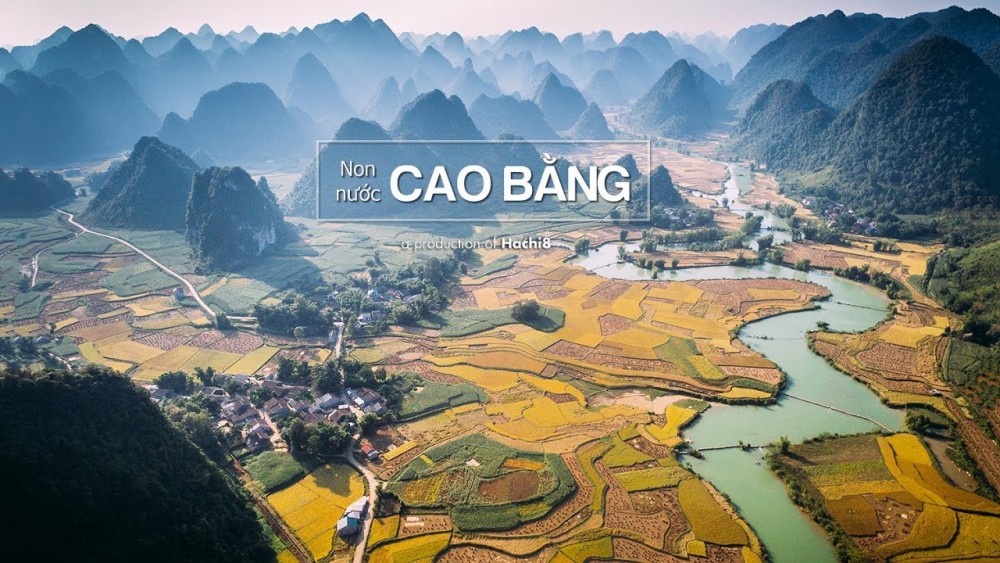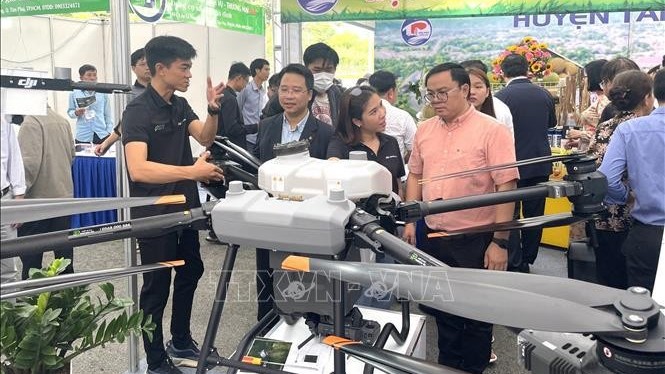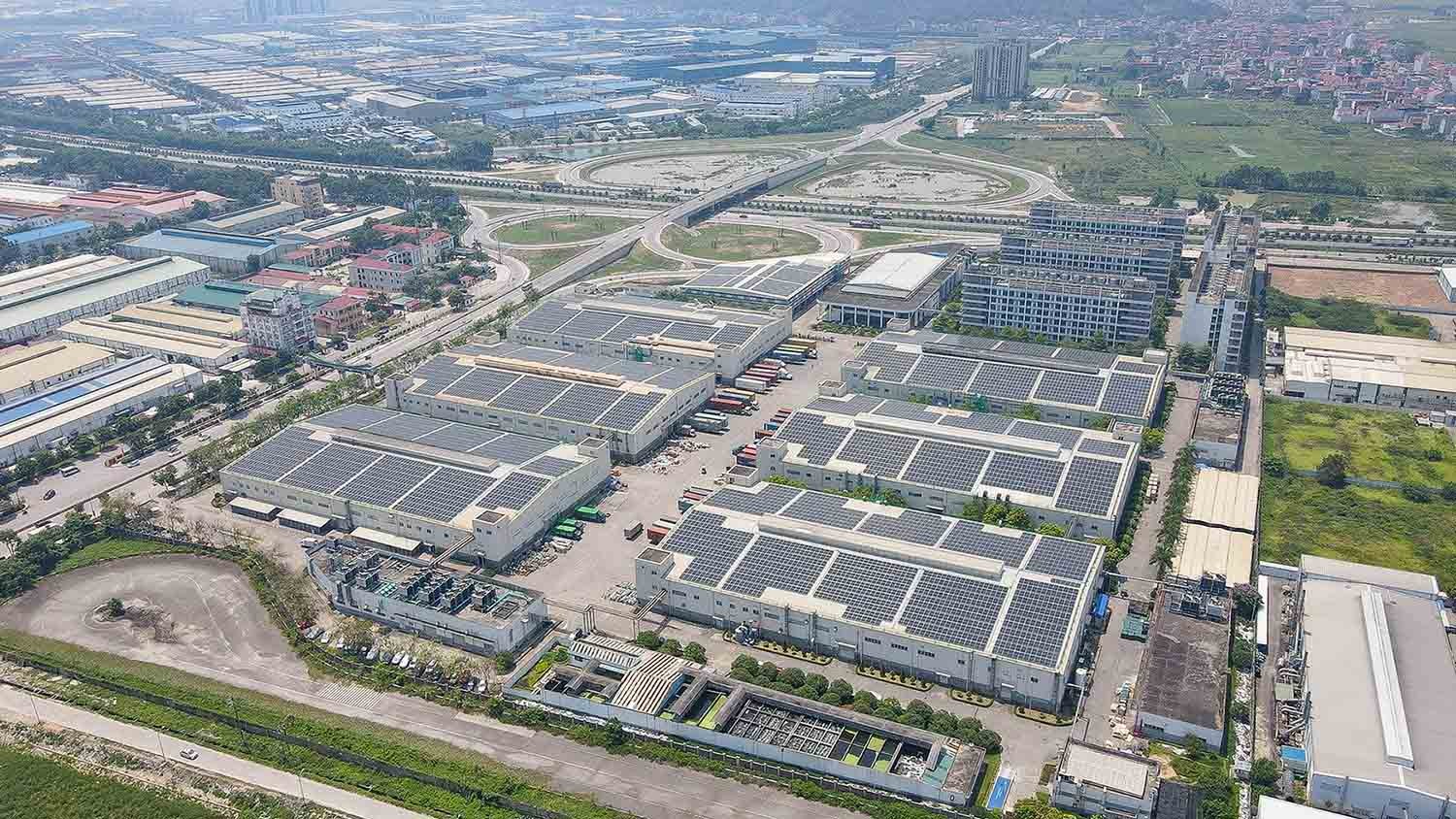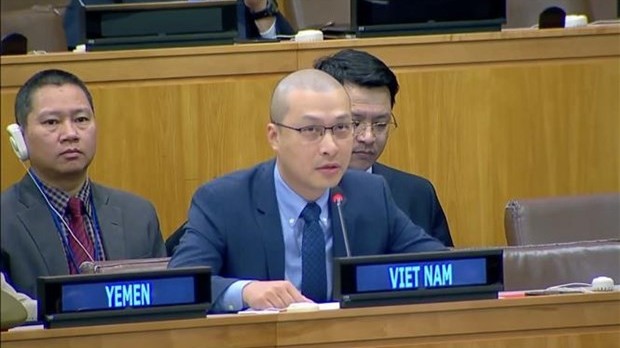
Vietnam's marine spatial planning for ocean sustainability: Workshop in Quang Binh
Latest
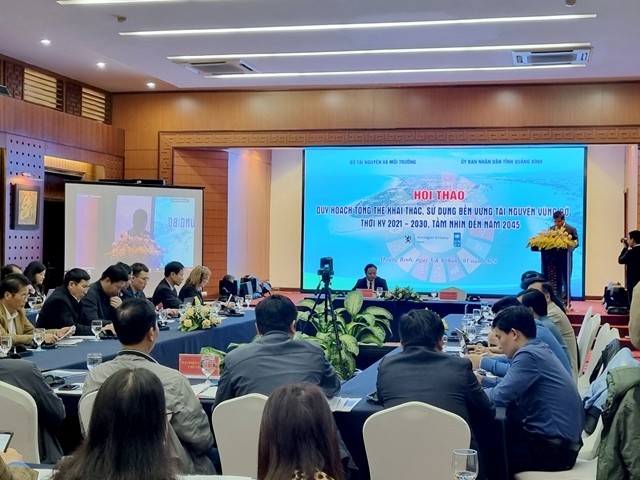 |
| Vietnam's marine spatial planning for ocean sustainability:Workshop on "Masterplan on Sustainable Exploitation and Use of Coastal Resources from 2021 to 2030, with a Vision to 2045” in Quang Binh, on January 5-6. (Photo: UNDP) |
Attending the workshop were representatives of ministries and branches of Government and coastal provinces and cities from Quang Ninh to Phu Yen; international organizations; experts, representatives of a number of units under MONRE and the Vietnam Administration of Seas and Islands.
Improve efficiency in management, exploitation and use of resources
According to the Ministry of Natural Resources and Environment, Vietnam is a coastal country with a coastline of more than 3,260 km in length, providing abundant natural capital for marine economic development and has great potentials for coastal and offshore wind power, which, if properly developed, will contribute to ensuring energy security and help Vietnam achieve its carbon-neutral commitments by 2050.
In order to promote this great potential, in 2018 Vietnam issued Resolution No. 36/NQ-TW on the strategy of sustainable development of Vietnam’s marine economy by 2030, with a vision to 2045, which set out important measures to develop a national marine spatial plan and a master plan on sustainable exploitation and use of coastal resources.
Speaking at the Workshop, MONRE's Deputy Minister Le Minh Ngan said: “As a coastal country with a long coastline and many islands and facing with the challenges of environmental pollution, decline of marine products and resources and impact of climate change, over the past years, Vietnam has actively developed and implemented policies and laws related to state management of seas and islands and enhancing international cooperation.
“The Master plan on Sustainable exploitation and use of coastal resources for the period of 2021 – 2030, with a vision to 2045", is a multi-sectoral, difficult and complex plan, which was prepared for the first time in Vietnam with an integrated approach. Therefore, the Deputy Minister hoped that through the Workshop, the participants will actively and responsibly exchange and discuss, and clarify the contents of the plan; roles and responsibilities of stakeholders and solutions to strongly promote the implementation of the plan in practice, as well as the management and supervision of the implementation of the plan in the future.
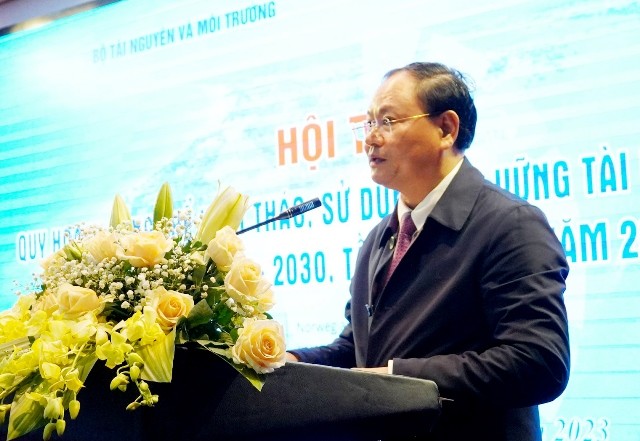 |
| Vietnam's marine spatial planning for ocean sustainability: Deputy Minister of Natural Resources and Environment Le Minh Ngan speaks at the Workshop. (Photo: UNDP) |
According to regulations, the scope of the Coastal Planning includes coastal waters and coastal land as follows: (i)The coastal sea area has the inner boundary as the lowest sea edge on average for multiple years (18.6 years) and the outer boundary is 06 nautical miles from the lowest sea edge on average for multiple years as determined and announced by the Ministry of Natural Resources and Environment and (ii) the coastal land includes coastal communes, wards and townships of 28 coastal provinces and cities directly under the Central Government.
The objective of the Master plan is to sustainably develop the coastal zone based on improving the efficiency of management and exploitation and use rising; improve livelihoods and living standards of coastal communities in association with conservation and development of natural, ecological and cultural values; maintaining social order and ensuring national defense and security.
Specific objectives include: Regarding economy, maximizing benefits and minimizing conflicts in the exploitation and use of coastal resources; rationally, economically and efficiently allocating natural resources in coastal zones to sectors, fields and coastal localities in socio-economic development; create more livelihoods and improve living standards for coastal communities. Successfully achieve breakthrough in developing modern coastal economic sectors, applying digital technology, advanced and environment-friendly techniques, contributing to raising the economic growth of 28 provinces and coastal cities over 7.5%/year, aiming to achieve "net zero emissions” by 2050;
Socio-culturally speaking, it seeks to protect and preserve the integrity of tangible and intangible cultural heritages; preserve and promote the cultural values and identity of each ethnic group in the coastal areas; make progress in social justice, ensure the right to access to the sea and enjoy basic services and social welfare of coastal people; strengthen the active and responsible participation of people in the protection of natural resources, environment and cultural and historical values in coastal areas.
Regarding the environment, effectively manage and protect the existing ecosystems in the coastal areas; restore and increase the area of protected areas on coastal lands and coastal waters, in order to contribute to the goal of achieving at least 6% of the area of coastal and marine protected areas. Effective management of pollution sources from the mainland, plastic waste pollution in the coastal area contributes to a 75% reduction in plastic waste at sea, 100% of marine protected areas no longer have plastic waste within the coastal zone, 100% of hazardous waste, daily-life solid waste and plastic waste in coastal areas are collected and treated up to environmental standards; 100% of economic zones, industrial parks and urban areas in coastal areas have centralized wastewater treatment systems, meeting environmental standards and regulations.
Important tools to help Vietnam develop blue-sea economy
In the opening remarks at Workshop, on behalf of the Norwegian Embassy in Vietnam, Deputy Head of Mission Mrs. Mette Moglestue said: “Norway is among the first countries to develop management plans for its coastal and ocean areas. These plans have been developed and perfected by us over many years, doing in tandem with learning from experience. Norway's waters are now among the world's best managed, with a high level of value creation. Specifically, the ocean contributes 70% of total Norwegian export revenue".
According to Ms. Mette Moglestue, Norway’s experiences with the integrated marine management approach shows that it is possible to simultaneously develop a prosperous ocean-based economy while ensuring clean and healthy marine environment. A quality marine spatial planning is the key to success. “Therefore, we are delighted to be with UNDP and Vietnamese partners to organize today’s workshop and share Norway’s experience in this regard,” said Deputy Chief of Mission Moglestue.
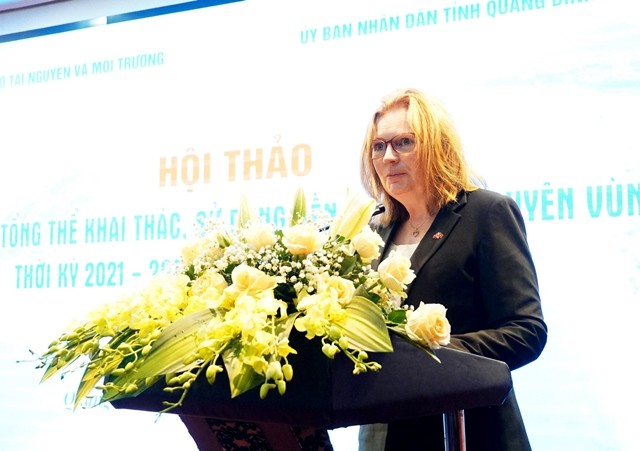 |
| Vietnam's marine spatial planning for ocean sustainability: Norwegian Deputy Head of Mission, Mrs. Mette Moglestue in her opening remarks at Workshop on "Masterplan on Sustainable Exploitation and Use of Coastal Resources from 2021 to 2030, with a Vision to 2045” in Quang Binh. (Photo: UNDP) |
From Norway, Head of Equinor’s Consenting/Permitting Offshore Wind, Mr Martin Goff also had a presentation sharing Norway’s experience with marine spatial planning and development of offshore wind projects.
On the UNDP side, Mr. Patrick Haverman, UNDP Deputy Resident Representative in Vietnam, said that sustainable management of coastal and marine areas is an important tool to help Vietnam develop a blue-sea economy, promote the development of new industries to increase income and create jobs. In particular, coastal planning and open marine spatial planning have the opportunity to exploit the great potential of marine wind energy as an important renewable energy source to achieve Vietnam’s climate goals. Marine spatial planning will also help ensure optimal and harmonized development between sectors in the exploitation and use of Vietnam’s coastal resources, as well as ensuring the conservation of nature and biodiversity, preserving the cultural and historical values, improving resilience to climate change.
At the Workshop, the representative of the of Vietnam Administration of Seas and Islands presented the content of the master plan for sustainable exploitation and use of coastal resources in the period of 2021 – 2030, with a vision to 2045. The planning is made on the basis of integrating relevant national sectoral master plans within the coastal zone, with adjustment and handling for overlapping areas in terms of coastal space use; ensure harmony in exploitation and use of natural resources, environmental protection and sustainable development of coastal areas.




